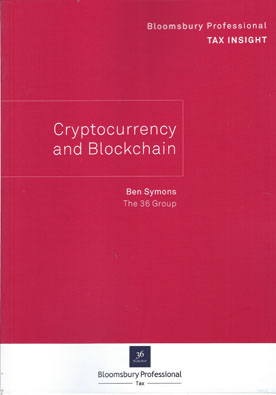We will be closed from 5pm Thursday 17th April for the Easter Bank Holidays, re-opening at 8.30am on Tuesday 22nd April. Any orders placed during this period will be processed when we re-open.

Developments in the world of blockchain and crypto-currency move fast and much has changed since HMRC's original guidance on the subject of crypto currency published in 2014.
In that original guidance there was a suggestion that dealing in crypto-currency was so risky that it could be compared to gambling and therefore outside the scope of taxation. However, the revised guidance issued in December 2018 has definitely moved away from that stance and individuals holding or intending to hold crypto-currency and their advisors need to be aware of the current taxation rules. Further guidance from HMRC on the tax treatment of crypto-assets for businesss and companies is expected soon.
This book provides a background to the development of bitcoin and the application of blockchain technology and then looks at the income tax, capital gains tax and IHT treatment of any crypto-currency. Worked examples and flowcharts/diagrams will be used where relevant to illustrate key concepts.
Crypto-currencies are increasingly being used globally and are more regulated in some territories. The bulletin will also deal with non-resident investors, and offshore crypto-currency funds and tax avoidance.